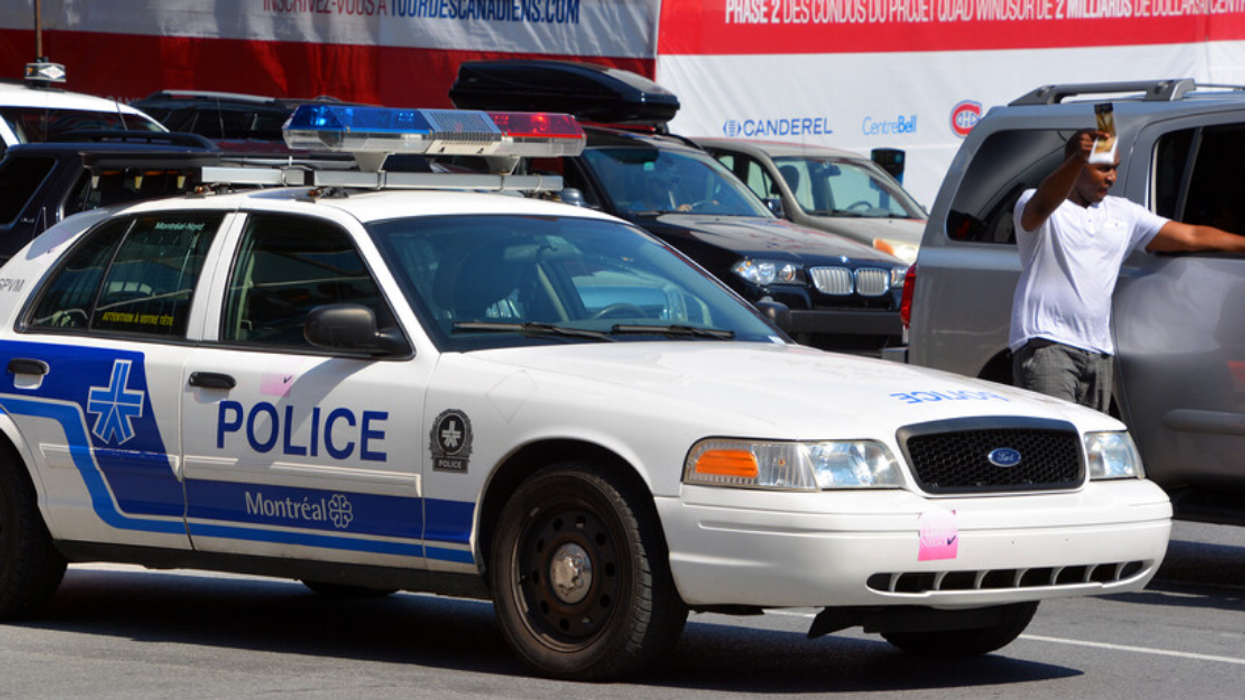Quebec Is Increasing Fines For Speeding & Beefing Up Photo Radar
The province's newest road safety initiative was announced this week.

An STM police car parked in a spot in Montreal.
Speeding across Quebec may be fun, but soon you'll pay an extra premium if you're caught driving above the speed limit. A new four-pronged initiative from the provincial government called the Road Safety Action Plan 2023-2028 seeks to better protect pedestrians and roadworkers through various measures including increased fines for certain offences.
The four prongs begin with the development of a safer road network, which includes reducing the school zone speed limit to 30 km/h across the province (with limited exceptions), expanding school zones and corridors, and investing $68 million in additional municipal funding to make the roads safer for cyclists and pedestrians.
"Quebec must remain proactive when it comes to road safety," Geneviève Guilbault, the minister of transport and sustainable mobility and deputy premier of Quebec, said in a recent press release. "Every accident is one too many.
"We're going to make it safer for our children to get to school and for our workers to get to construction sites. We're going to give municipalities more tools to intervene in their road network, particularly in the vicinity of schools."
The next prong is preventing risky behaviour, and this is where the increased fines come into play. First, the province plans to deploy more photo radar and make the technology to do so available to Quebec municipalities in the hopes of minimizing speeding.
Demerit points are also set to increase for certain offences, notably those against (say it with me) cyclists and pedestrians. Exactly which regulations are set to change and which fines are going to increase is up to the SAAQ, which determines the exact demerit points to be associated with the targeted infractions.
The third prong is research and technological innovation, which Guilbault and her cabinet hope will provide a framework for dealing with motorized personal transport devices, also known as e-scooters and hoverboards (among other devices). The research will also test new ways to signal, operate and monitor technologies intended to improve road safety and reduce the risk of heavy-vehicle collisions.
Finally, the fourth category of initiative is communication and training activities on road safety practices. The CAQ hopes to develop and deploy a major road safety campaign to supplement the SAAQ's existing campaigns. There will also be a revival of the Table d'action concertée en sécurité routière (Table québécoise de la sécurité routière), which serves as a boardroom of stakeholders in road safety.
This article's cover image was used for illustrative purposes only.

